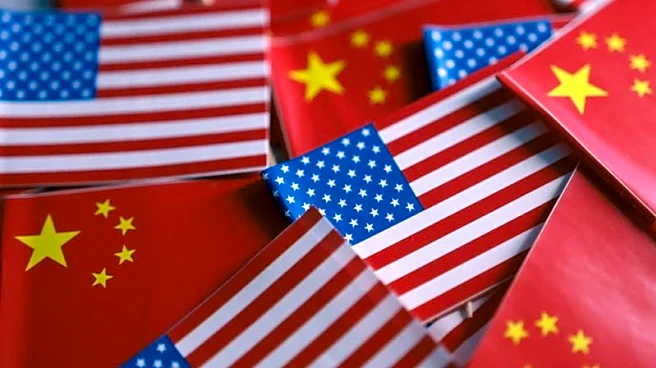What's Happening?
President Trump has expressed a need for clarity on Ukraine's intended use of U.S.-made Tomahawk missiles before agreeing to supply them. This statement comes amid ongoing tensions between Ukraine and Russia, with Ukrainian President Volodymyr Zelenskyy requesting the U.S. to sell these missiles to European nations for transfer to Ukraine. The Tomahawk missiles, with a range of 2,500 kilometers, could potentially place Moscow within Ukraine's reach. President Trump, when questioned about the decision, indicated a cautious approach, emphasizing the need to avoid escalating the conflict. Meanwhile, the Kremlin has shown a positive response to Trump's openness to extending the New Start arms reduction treaty, which is set to expire soon.
Why It's Important?
The decision on whether to supply Tomahawk missiles to Ukraine holds significant implications for U.S.-Russia relations and the broader geopolitical landscape. Supplying these missiles could enhance Ukraine's military capabilities, potentially altering the balance of power in the region. However, it also risks escalating the conflict, drawing the U.S. deeper into the ongoing war. President Trump's cautious stance reflects the delicate nature of international arms agreements and the potential consequences of military support. The situation underscores the complexity of U.S. foreign policy decisions in conflict zones and their impact on global stability.
What's Next?
The next steps involve further discussions and assessments by the U.S. administration regarding the potential supply of Tomahawk missiles to Ukraine. President Trump's decision will likely consider the strategic implications and the responses from both European allies and Russia. Additionally, the extension of the New Start treaty remains a critical point of negotiation, with potential impacts on nuclear arms control and international security. Stakeholders, including NATO members and other global powers, will be closely monitoring these developments.










